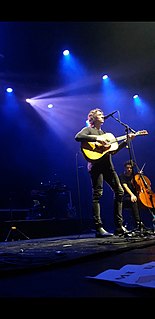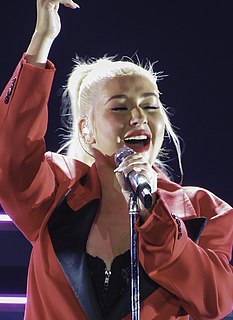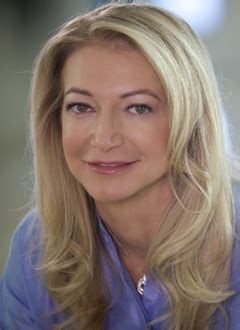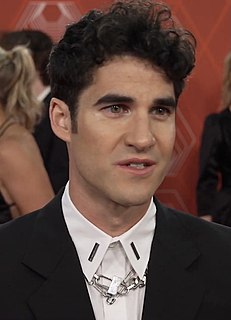A Quote by Dean Lewis
When you first start out, it's a big thing you're always like 'does my voice sound good?'
Related Quotes
I write first drafts with only the good angel on my shoulder, the voice that approves of everything I write. This voice does'nt ask questions like, Is this good? Is this a poem? Are you a poet? I keep this voice at a distance, letting only the good angel whisper to me: Trust yourself. You can't worry a poem into existence.
But when you are doing an animated voice, it has to have more energy than usual or it falls flat and doesn't work. For myself, I found that I had to put myself in the same physical or emotional state as Sid, in order to make that voice sound alive and authentic. So if there was a scene in which he was running, I would be running beforehand to sound out of breath. That's important because the audience can tell intuitively if it does not sound real.
Lawyers on TV always tell their clients not to say anything. The cops say that thing: 'Anything you say will be used against you.' Self-incrimination. I looked it up. Three-point vocab word. So why does everyone makes such a big hairy deal about me not talking? Maybe I don't want to incriminate myself. Maybe I don't like the sound of my voice. Maybe I don't have anything to say.
I'm a musician, and I'm fascinated with the effects of sound, and tone, and pitch and melody and all that sort of stuff. It's the first thing I have to solidify whenever...I get into a character. The first thing I need to get sorted out before I can then move forward, before I can feel any confidence whatsoever, is the voice.
It [my vocal] didn't sound like what I wanted to hear; the vibrato isn't what I liked anymore. So I got myself to an ear, nose and throat guy who does a lot of work with singers, and I was hoping there was a big wart on my vocal cords or something and they could scrape it off and I could have the voice I wanted. But he said, "No, for 71, that's your voice."
I think, when you're a young composer, you're told constantly that what you're supposed to do is figure out what your voice is. "What is your thing supposed to sound like?" You know: "What's the thing you do," that everyone can recognizably tell from a long distance is you and then you're supposed to be in search of that marker and you're supposed to find it and you're supposed to live there for the rest of your life. And it seemed to me, from a young age, that was what I was encouraged to do. You find a sound and that's your sound! That's what you do.
I think there's an attitude these days that you can go straight from a studio to the stage, and it isn't really like that. But playing live was the most important thing for me at the start because whenever I recorded something, it didn't sound right; I didn't like how my voice sounded. It was just raw.


































